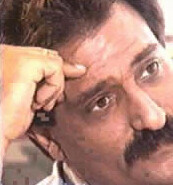4 January 2003

MK Azmi Bishara
Adalah will file an appeal to the Supreme Court of Israel on Sunday, 5 January 2003, against the CEC’s decision to disqualify the NDA list. The CEC’s decisions to disqualify MKs Azmi Bishara and Ahmad Tibi as individual candidates, however, require the Supreme Court’s approval in order to be implemented. A panel of 11 Supreme Court justices will review these decisions and hear all appeals on Tuesday, 7 January 2003. The Court must deliver its final judgments by 9 January 2003, according to the Elections Law (1969).
On 27 December 2002, Adalah submitted four reply briefs on behalf of Arab MKs and political party lists to the CEC. These briefs responded to numerous motions by right-wing MKs seeking to disqualify MKs Azmi Bishara (NDA), Abd el-Malik Dehamshe (United Arab List), and Ahmad Tibi (Ta’al), as individual candidates, and three political party lists – the NDA, the United Arab List (UAL), and the joint Democratic Front for Peace and Equality (Hadash) - Ta’al list. In the case of the NDA, the Attorney General initiated the disqualification request, a move unprecedented in the history of Israeli politics. The disqualification motions, made pursuant to Section 7A of the Basic Law: The Knesset and its May 2002 amendments, alleged that the goals and actions of the Arab MKs and candidate lists “den[y] the existence of the State of Israel as a Jewish and democratic state” and lend “support of armed struggle, of an enemy state or of a terrorist organization against the State of Israel.” In all of the reply briefs, Adalah comprehensively refuted these claims.
This week, the CEC, which is comprised of 41 representatives of all political parties in the outgoing Knesset, held hearings on these motions. The CEC voted to approve the candidacy of MK Abd el-Malik Dehamshe and the UAL (21 to 9, with 3 abstentions). Adalah Staff Attorneys Orna Kohn and Gadeer Nicola filed the reply brief on behalf of MK Dehamshe and the UAL, and represented them before the CEC. The CEC also voted to approve the participation of the joint Hadash-Ta’al list (27 in favor, 1 against, and 9 abstaining).
On 30 December 2002, the CEC voted to disqualify MK Ahmad Tibi, the third candidate on the joint Hadash-Ta’al list (21 in favor, 18 against, 2 abstaining). This vote ran counter to the position of Justice Heshin, who voted against the disqualification, and the recommendation of the Attorney General, who favored approving MK Tibi’s candidacy.
MK Tibi addressed the CEC, explaining his views on the occupation, the right of occupied peoples to resist occupation, and the right to self-determination. He stated that throughout his term as an MK, he has worked for democracy, not against it as have those who sought to disqualify him. MK Tibi stressed that he rejects government policy, not the state itself: “I reject the foreign and security policy of the government. This is my role as a member of the opposition. I reject the war policy of the Israeli government. I rejected Operation Defensive Shield. I reject the curfews, and I reject the starvation. I reject the assassinations…When I reject [these things] I am seen as an enemy. But a when a Jewish parliament member rejects [these things], then it’s a legitimate position.” The reply brief on behalf of MK Tibi was filed by Adalah Staff Attorney Marwan Dalal, who also addressed the CEC on the legal arguments against disqualification.
After the CEC vote, Justice Heshin commented that the decision to disqualify Tibi was “bad and incorrect.” He stated that he does not view Tibi as supporting armed struggle, though he objects to some of the things the MK has said. Justice Heshin noted that Tibi’s statements originate in his pain at seeing his people suffer, and that this pain is legitimate. He stressed that the fact that MK Tibi is an Arab and not part of the Zionist movement should not be used to disqualify him from participating in the elections.
The CEC also voted, on 31 December 2002, to disqualify the NDA (21 in favor, 20 against) and MK Azmi Bishara (22 in favor, 19 against), after 13 hours of hearings. In his concluding remarks, Justice Heshin stated that the evidence submitted by the Attorney General had nearly convinced him, “but listening to Mr. Bishara’s testimony and the case put forth by his defense attorney made it clear that there was no basis to disqualify either Balad [NDA] or MK Bishara.” He added that it cannot be concluded, based on the evidence, that MK Bishara and the NDA deny the existence of the State of Israel, or that they support terrorist organizations. He agreed with Adalah’s contention that the information provided by the Attorney General cannot be relied on, as it does not provide specific dates or names of persons who made alleged statements.
Speaking before the CEC, MK Bishara explained the contradiction that exists between Zionism and the ‘state of all its citizens’ that his party envisions. Further, he outlined his views on the occupation, and said that the NDA employs legal means in its attempts to end the occupation. He emphasized that he opposes the harming of innocent people, and has never encouraged terror. He also explained his views regarding the Israeli occupation of South Lebanon, but stressed that he had never said anything about the ways in which the Lebanese should resist the occupation.
At an earlier stage in the hearings, MK Bishara and his lawyer, Adalah General Director Hassan Jabareen, Advocate, responded to the evidence submitted by the Attorney General. MK Bishara refuted the claims of the GSS, declaring them absurd and utterly devoid of any factual basis. Further, Mr. Jabareen strongly objected to the interference of the GSS in the political process. The GSS, as an organ of the Prime Minister’s office, is limited to providing information about immediate threats to public security. Its attempts to influence the electoral process, by introducing analysis of the political situation in the guise of evidence, is an unlawful intervention, Mr. Jabareen argued.
In Adalah’s view, the CEC decisions to prohibit the Arab MKs and the NDA political party list from taking part in the elections contradict democratic values. Such decisions harm the minority’s rights to equality and freedom of expression, their right to challenge the majority’s political positions, and their basic right to demand change in legitimate ways. Adalah is gravely concerned by the politically-motivated decision-making of the CEC. These decisions are without legal basis under Section 7A of the Basic Law: The Knesset; rather, they seek to undermine the political participation rights of the Arab minority in Israel.
Related Links:



